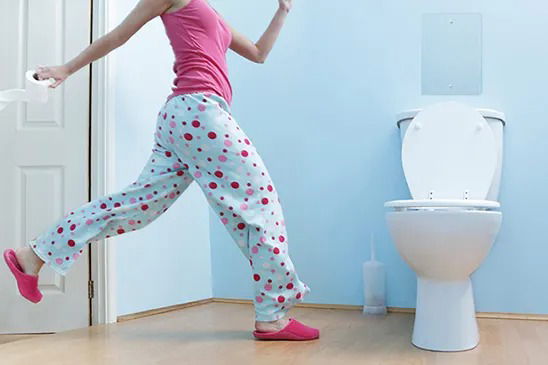Sleep problems, such as sleep apnea, can cause nocturia. The frequent awakenings caused by these diseases may heighten awareness of the desire to urinate, even if the bladder is not full.
#8: How Stress and Anxiety Affect Urination Patterns
Stress and worry can significantly affect the body’s physiological systems, including urine. The body’s fight-or-flight response can boost pee production, resulting in more frequent midnight treks to the restroom.
Diagnostic Approaches to Identify Underlying Issues
To properly treat nocturia, it is necessary to determine the underlying reason. This may include a medical history review, physical examination, urine testing, and imaging studies. A healthcare provider can assist in determining the most appropriate diagnostic approach.
Effective Lifestyle Modifications and Home Remedies
Simple lifestyle modifications can often help with nocturia. These include limiting fluid consumption in the evenings, minimizing bladder irritants, and performing pelvic floor exercises. Furthermore, elevating the legs during the day can assist prevent fluid retention.
Medical Treatments and Interventions
When lifestyle changes are insufficient, medical interventions may be required. These may include drugs that lower urine production or treat underlying problems. In some circumstances, surgical procedures may be explored to address anatomical abnormalities that impair bladder function.
When to Seek Professional Medical Advice
If nocturia has a substantial impact on your sleep or quality of life, you should seek medical attention. Persistent nocturia can indicate an underlying health problem that requires professional diagnosis and treatment.

Conclusion: Managing Nocturia for Better Sleep
Nocturia can be a troublesome and frustrating illness, but with the correct treatment, it can be efficiently managed. Individuals can improve their sleep quality and overall well-being by learning about the various causes and investigating both lifestyle and medicinal options.
